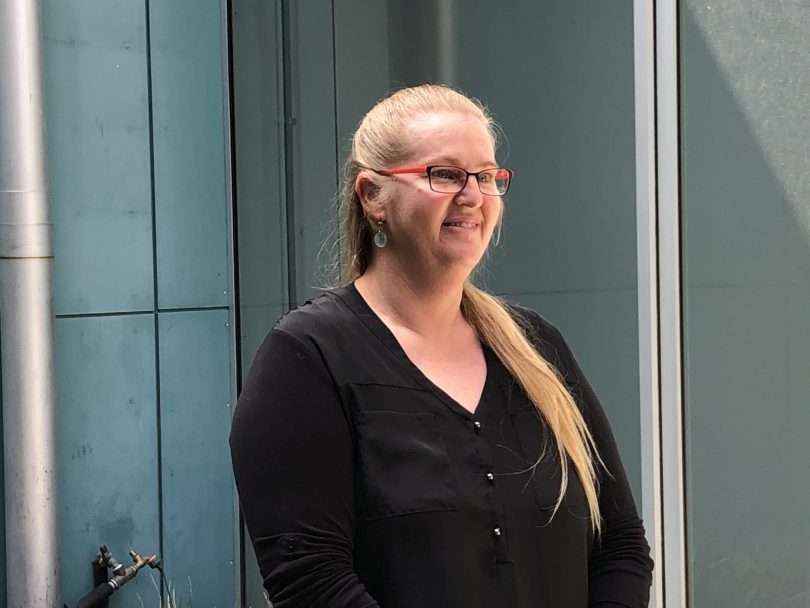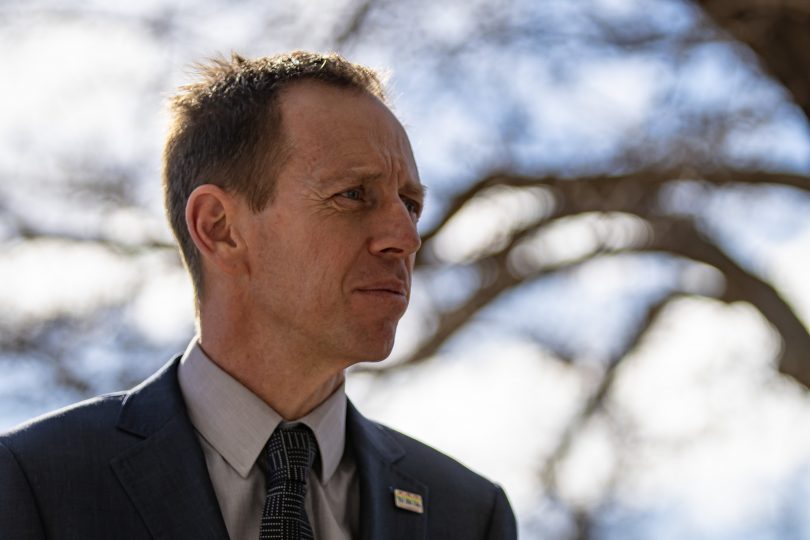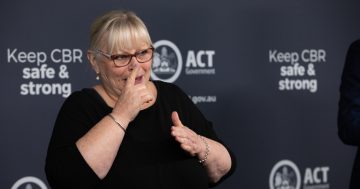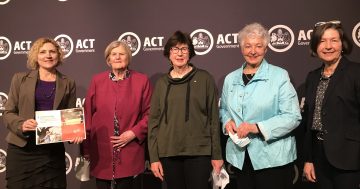
Amanda Sullivan said the mental health of the deaf and deafblind community has suffered through a lack of face-to-face, one-on-one mental health services. Photo: File.
Deaf and deafblind Canberrans are being turned away in crisis mental health circumstances due to a lack of psychologists and interpreters who can communicate via sign language, according to deaf Canberran Amanda Sullivan.
Ms Sullivan said fellow members of the deaf and deafblind community have not had access to face-to-face, one-on-one mental health services for the past two years due to a lack of Auslan interpreters available at short notice for crisis mental health incidents.
She said the mental health of the deaf and deafblind community is at an all-time low.
“The mental health of our community has taken a nosedive over the past two years,” Ms Sullivan said. “We have had people who have been suicidal and I have had suicidal people come to my home at odd hours.
“A client who was high-risk went to the hospital, there was no interpreter provided and he was sent home, even though he had access to a gun. He was turned away because they are not able to see that the client has an issue because they don’t understand the language [Auslan].
“There needs to be a psychologist who is experienced with deafness, the language, the culture and who can effectively work with deaf clients.”
Between 2009 and 2017, the ACT Health Directorate supported a specialist from Wollongong to provide psychological services to the deaf and deafblind community in Canberra, covering the costs for when she travelled to the ACT to deliver services two days a fortnight. But after an ACT Health Directorate enquiry into the doctor’s referrals and treatment methods, the doctor suddenly decided to cease her services to the deaf and deafblind patients in Canberra.
Ms Sullivan said her community was surprised by the decision, and since then there have been no psychologists who have been able to assist deaf and deafblind patients.
“I don’t believe ACT Health appreciates the difference between hearing and deaf mental health patients, and how various mental health issues manifest differently in deaf people,” Ms Sullivan said.
“It takes a long time to build relationships between psychologists and patients to understand the language, the background, the low-literacy skills of some deaf people, and it takes hours and hours to get to know their clients above and beyond what it would take for a hearing person.
“It takes much longer for them to provide support to their deaf clients.”
Deputy Leader of the Opposition Nicole Lawder said the ACT Government needs to immediately provide culturally and linguistically appropriate one-on-one mental health services for deaf and deafblind ACT residents.
Ms Lawder said there needs to be an urgent examination on how deaf and deafblind people in the ACT are provided with health and mental health services, and how their needs can be better addressed in the future.
“Members of the deaf and deafblind community are struggling to gain access to mental health services that can transcend cultural and language barriers,” Ms Lawder said. “For many of them, Auslan is their first language, and it’s crucial to be able to communicate in that language.
“The lack of Auslan interpreters makes it very difficult to respond to a crisis mental health incident. There have been occasions where vulnerable members of the deaf and deafblind community seeking mental health support have been turned away because of the communication barrier.”
Ms Lawder called it a significant failure in the ACT’s mental health system.
“The government needs to take action now to prevent this worrying situation from getting worse,” Ms Lawder said. “We need to learn the best ways to provide mental health support to vulnerable members of our community.”

Mr Rattenbruy said there is a shortage of Auslan interpreters in the ACT. Photo: File.
ACT Minister for Mental Health Shane Rattenbury said the ACT Government will consult with key stakeholders and mental health services to see what gaps exist in the service.
“I am aware of the skills shortage of Auslan interpreters in the ACT, which I understand is a nationwide issue,” Mr Rattenbery said. “However, I am assured by Canberra Health Services there have been no consistent or discernible issues that have arisen in regard to this in terms of service provision in the Territory.
“The ACT Government will consult with key stakeholders, including the Deaf Society, Office for Disability, and mental health and disability services to ascertain any concerns held by our deaf and deafblind community about mental health service provision or gaps that may exist,” Mr Rattenbury said.
If you are concerned about your mental health or the mental health of someone you know, call or visit Lifeline 13 11 14, Mensline 1300 789 978, Kids Helpline 1800 551 800 or beyondblue 1300 224 636. If danger is imminent, call 000.




















